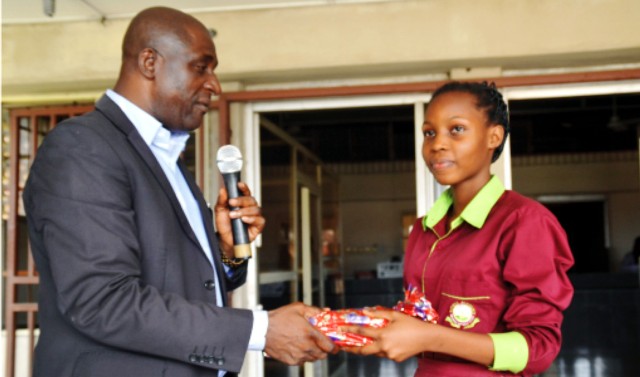Business
GMOs Not New Invented Crops – Agency

The National Bio-safety Management Agency (NBMA) says Genetically Modified Organisms (GMOs) are the same conventional crops but improved versions for the purpose of sustainability and improved yields.
The Director-General of the agency Dr Rufus Egbegba, made the clarification in an interview with newsmen last Monday in Abuja.
According to him, GMOs are not new crops invented by scientists but the same conventional crops that are improved on to tackle persistent issues such as shortage of food and insect infestation on crops.
“Genetically modified organisms are not different from their conventional counterparts.
“The difference is that for instance like sugarcane, if you can discover what makes sugarcane to be sweet, you can sequence it.
“Pick that particular gene, the material of inheritance of the sugarcane and if you put it into plantain, the plantain will have the sweetness of sugarcane.
“You can even put it into orange and it will have the same sweetness.
“In genetically modified corn, there is this bacterium, it is always in the soil and it has been confirmed not to have any harm when you consume it.
“So, they discovered that it has a particular gene that can kill a particular insect that attacks corn; so, they put that gene in the corn and when the insect tries to bite the corn, it dies.
“So, the corn will now be protected, that is how it is. It is not necessarily a new crop.
“They are not new crops; it is the normal crops you have, just because they added something to it,’’ he said.
Egbegba said that cowpea and sorghum were presently being tried at the Institute of Agricultural Research in Zaria.
According to him, the cowpea is modified for insect resistance, and sorghum is modified for the availability of nutrients.
“Guinea corn naturally has iron zinc and protein, but there is a particular enzyme that makes those nutrients unavailable to humans and animals when they consume it naturally.
“But science can break down that barrier so, that is the modification that is being carried out and it is on trial in the field to make sure it is sustained because it takes a long process.’’
Business
Fidelity Bank To Empower Women With Sustainable Entrepreneurship Skills, HAP2.0
Business
President Tinubu Approves Extension Ban On Raw Shea Nut Export
Business
Crisis Response: EU-project Delivers New Vet. Clinic To Katsina Govt.
-

 News3 days ago
News3 days agoAmend Constitution To Accommodate State Police, Tinubu Tells Senators
-

 Politics3 days ago
Politics3 days agoSenate Urges Tinubu To Sack CAC Boss
-

 News3 days ago
News3 days agoDisu Takes Over As New IGP …Declares Total War On Corruption, Impunity
-
Business3 days ago
President Tinubu Extends Raw Shea Nuts Export Ban To 2027
-
Business3 days ago
Crisis Response: EU-project Delivers New Vet. Clinic To Katsina Govt.
-
Sports3 days ago
NDG: Rivers Coach Appeal To NDDC In Talent Discovery
-
Business3 days ago
President Tinubu Approves Extension Ban On Raw Shea Nut Export
-
Rivers3 days ago
Etche Clan Urges Govt On Chieftaincy Recognition

